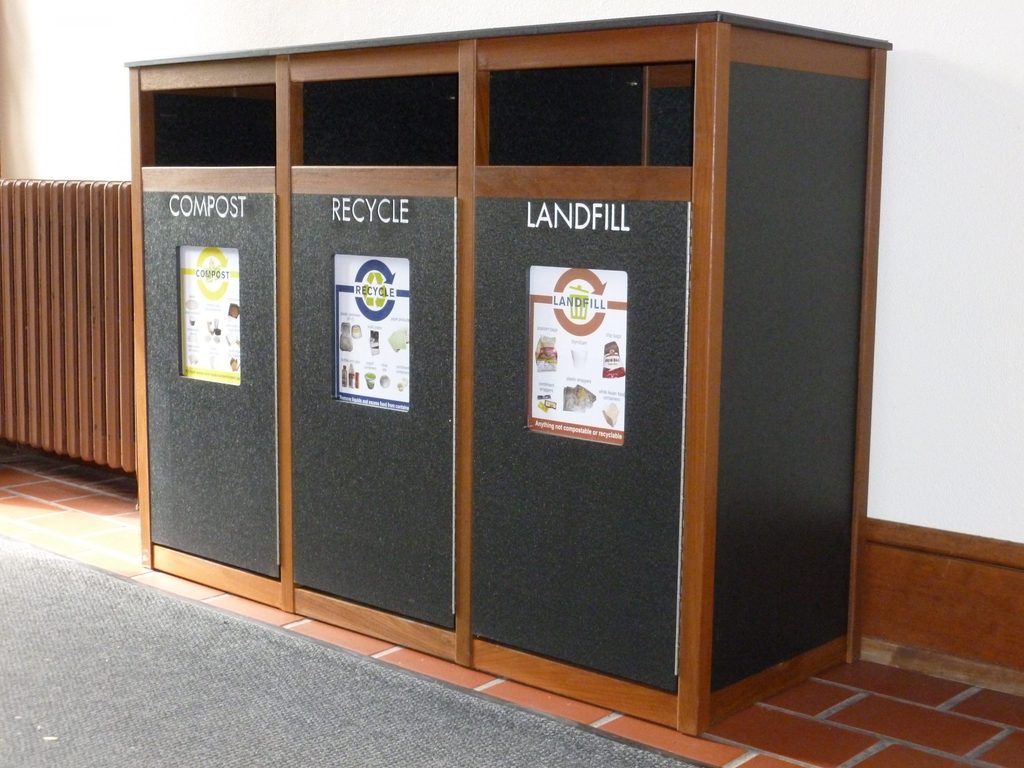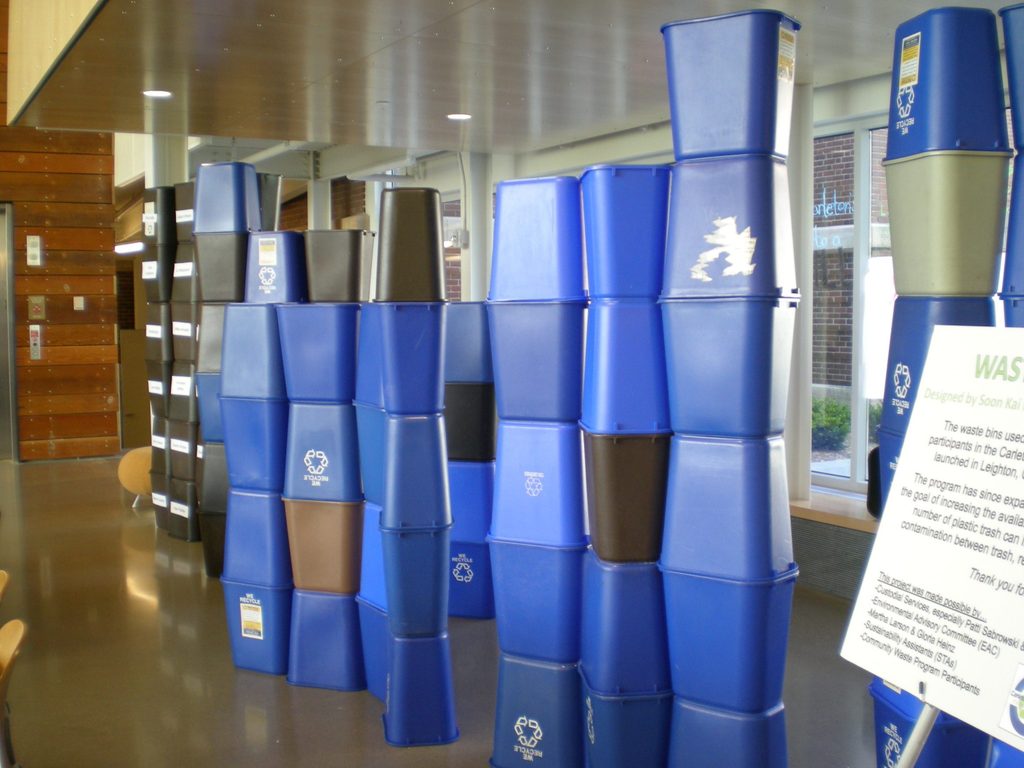The Zero Waste Task Force (ZWTF) is a coalition of students and staff working to make Carleton a Zero Waste Campus by 2030. We define zero waste as 90% of waste by weight being composted or recycled. Our current initiatives included:

- Setting campus goals
- Zero Waste Basketball and Football Games
- Worked with Res Life to create more waste-friendly dorms
If you are a Carleton community member interested in joining the ZWTF, please email sustainability@carleton.edu.
Compost in your room or office
ZWTF encourages all Carleton community members to always compost their personal trash. Many people find this easier if they have a compost container in the office or room. If you can, convert one of your preexisting personal trash or recycling bins to compost; this is especially convenient in doubles and triples, where there is a trash can for every occupant.
For those in singles or in offices, we recommend finding a small container such as an ice cream bucket and using that for compost. When your container is full, simply dump it in the compost bin on your floor or in your office’s triple bin.
History

Carleton Community Waste Program
Created through collaboration between the Sustainability Assistants and Custodial Services, the Carleton Community Waste Program is an innovative waste initiative that fulfills recommended actions within the waste focus area of Carleton’s Climate Action Plan. The Community Waste Program was launched as a six-building pilot initiative during winter and spring of 2012. During summer 2012, the program was expanded to all academic and administrative buildings.
Program goals include…
- Expanded availability of composting in academic and administrative buildings
- Decreased contamination between the trash, recycling, and composting waste streams
- A reduction in the use of individual plastic trash can liners
- Greater awareness about the amount and type of waste our campus produces
The program features centralized waste stations where three color-coded waste bins (one for each waste stream) are located together in a single location on each floor. Excess bins in classrooms and communal spaces are removed to direct waste into the central waste stations where all three options (compost, recycle, landfill) are always available. This helps to reduce waste stream contamination which inevitably occurs when only one bin type is provided in a given location.
Additionally, participants can engage with the program on an individual level by volunteering to either a) take responsibility for their personal trash and recycling bins and bring their waste to the central waste station, or b) give up one or both of their bins entirely. Through this individualized approach, we hope to reduce the use of disposable plastic trash can liners and more directly engage faculty and staff in the waste stream process.